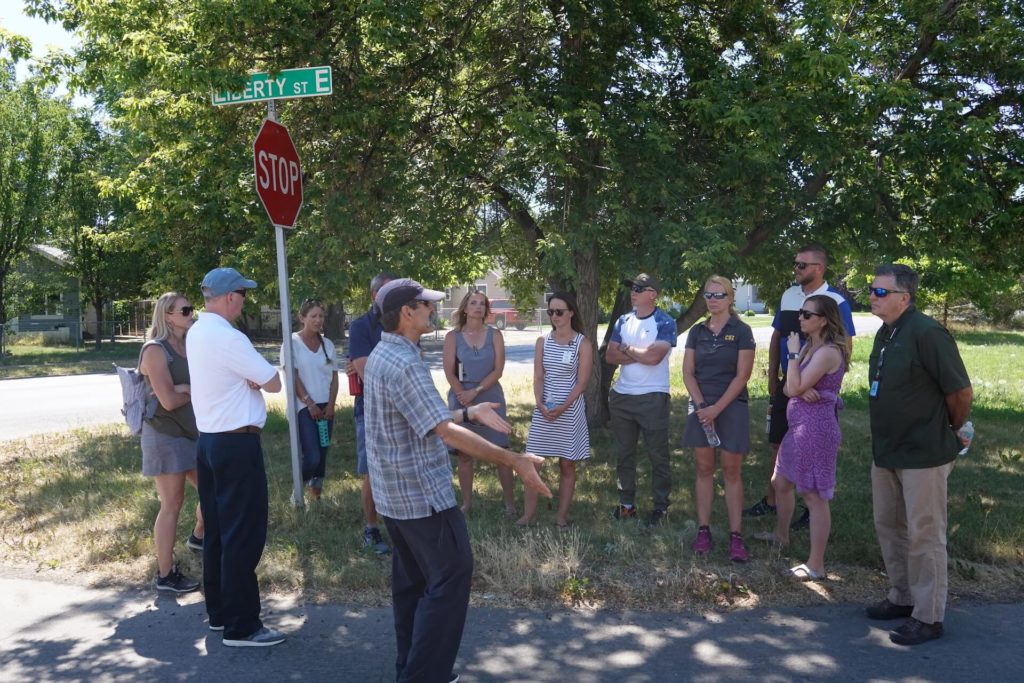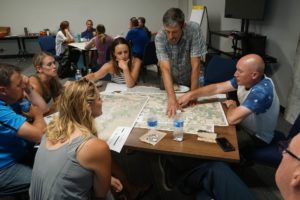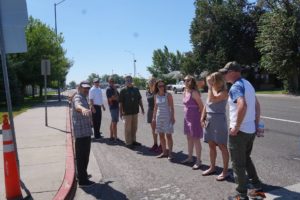
TWIN FALLS — When the Blue Cross of Idaho Foundation for Health awards a Community Transformation Grant, it includes access to national experts for the community’s leaders.
On Monday in Twin Falls, community health expert Mark Fenton was in town to work with community leaders to educate, motivate, advise and answer questions about things the community can do to make the community a safer place to walk and ride a bike.

“I saw a lot of light bulbs going on in the group,” Twin Falls Mayor Shawn Barigar said after he and the community leaders spent more than six hours with Fenton, including more than an hour performing a walk audit on city streets.
Fenton is an engineer and adjunct professor with a passion for helping to create healthier communities. He inspires others to think of ways to create “free-range kids,” ones who have freedom to walk, bike and play outside because environments are safe to do so.
That helps fight childhood obesity, which is a major health concern in Idaho and across the nation. The Community Transformation Grants awarded to Twin Falls and Orofino provide up to $250,000 to the communities to help create solutions to get kids more active and have access to healthy foods.
“Free-range kids lead to free-range populations,” said Mark, who recommends groups focus on programs, projects and policies to make sustainable changes.

RoseAnna Holliday, a chair for the College of Southern Idaho’s Health and Human Services department, found great value in the session. She said her No. 1 takeaway was that changes have to be made in built environments to help create safer places for kids to be active.
“We don’t have the physical infrastructure in place to allow kids to be active,” she said.
That’s what the session, after the walk audit, sought to address. The leaders split into two groups and brainstormed ideas that could be implemented to get kids physical active. Those will be vetted and discussed at future meetings about how to best apply grant funds.
“My goal is every time I do a workshop is to find four or five ideas that can be done for a couple of hundred dollars that make it potentially safer for kids to walk for their health,” Mark said.